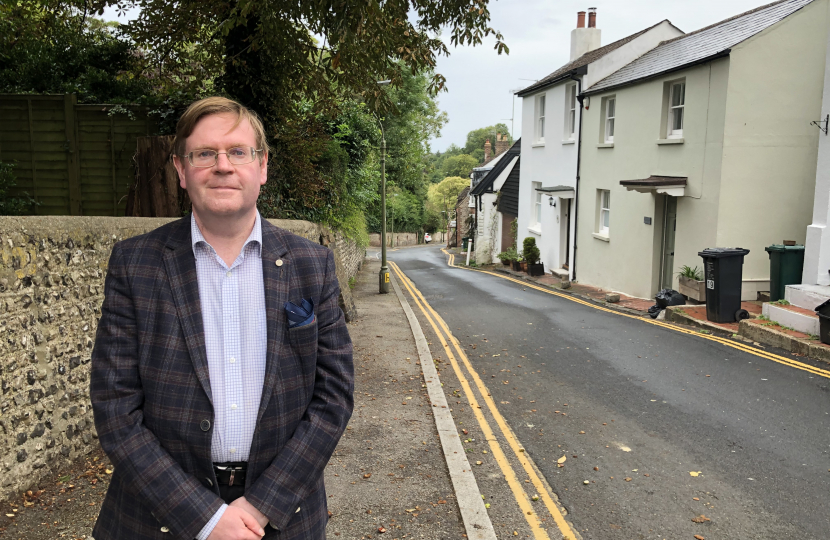
New statistics show that Brighton & Hove City Council is one of the highest taxing councils in the country – but are residents getting value for money from their high local contributions?
Conservative Finance Spokesperson Alistair McNair has been analysing the data on Brighton & Hove City Council’s local taxation rates and how it compares to local authorities in the rest of the UK. The results are clear: Brighton & Hove residents are being taxed much higher by their council than residents of other local authorities.
The Live Tables on Council Tax statistical data set shows that over the course of the past ten financial years from 2012-3 to 2022-3, Brighton & Hove City Council has increased its Band D Council Tax rate levied by 42.8%. This is the 12th highest increase of any local authority in the UK over this period. Only 11 local authorities out of 301 available for comparison have imposed bigger increases, putting Brighton & Hove in the top 4% of authorities for its council tax rises over the last 10-year period.
These 10 years of higher-than-average Council tax rises under Green-Labour administrations have left Brighton & Hove on the cusp of being designated a ‘very high taxing council’ by the UK Council Tax index. According to the index, Brighton & Hove City Council comes in at 303rd out of 362 UK local authorities in a ranking of lowest to highest taxing councils in 2022/2023.
Whatever way you look at it, Brighton and Hove City Council is not performing well on keeping council tax manageable compared to other councils across the UK.
This data raises questions about whether Brighton & Hove residents are receiving good value for their comparatively high council tax, a question that Cllr Alistair McNair put to the Leader of the Council at the Finance Committee meeting on Thursday. He asked why Brighton & Hove City Council had increased council tax so steeply compared to 96% of other councils in the UK over the past 10 years and whether the Leader shared residents’ concerns that they are not receiving value money from their council tax contributions.
While local residents are paying such high levels of council tax compared to the rest of the country, the services they are receiving are ranked among the worst. For example, Brighton and Hove has among the worst recycling records in England- with just 29.4 per cent being recycled, well below the national average of 45.5 per cent, with the worst rate in Sussex and among the worst in the South East of England. One year on from the bin strikes, some areas are not receiving proper regular services still. And as Andy Winter wrote in his Argus column this week, the City is a mess with pavements not being weeded properly or kept clear. Value for money is clearly not being delivered.
Beyond service delivery, there is a wider concern that these high local taxes are encouraging families to leave the city. Over recent years we have seen a trend of many families leaving, threatening the viability of some schools. The demand for primary school places is projected to collapse in the City by 9.5% between 2023 and 2025 as families continue to move out. This will also have an impact on council tax receipts.
It is not just Council taxes that are so high in Brighton & Hove: The council is also leveraging some of the nation’s highest fees and charges on its residents as well.
As The Argus recently reported, Brighton & Hove now has the 5th highest parking charges in the country. In addition, the Green-Labour Council put resident parking permits up by a sizable amount in this year’s budget to pay for pet projects – up to 90% in some instances – and traders have also been raising concerns about hikes in their traders’ permits that are making it harder to do business.
The combined impact of these high taxing policies of Brighton & Hove City Council is putting unwanted pressure on residents and businesses during the current cost of living crisis, providing an additional burden to living in the City. Excessive parking permit and council tax bills are the last thing residents need right now, but that is what this Council is giving them.
In the current climate, the council needs to look at its tax levels and reassess whether they are appropriate. Under the last Conservative Administration in the City between 2008 and 2011, our Conservative team got the finances under control and by the end of their term were able to propose a 0% council tax increase, easing pressure on residents.
Brighton & Hove residents need a return to better financial management and value for money from this council to ease their cost of living pressures.



